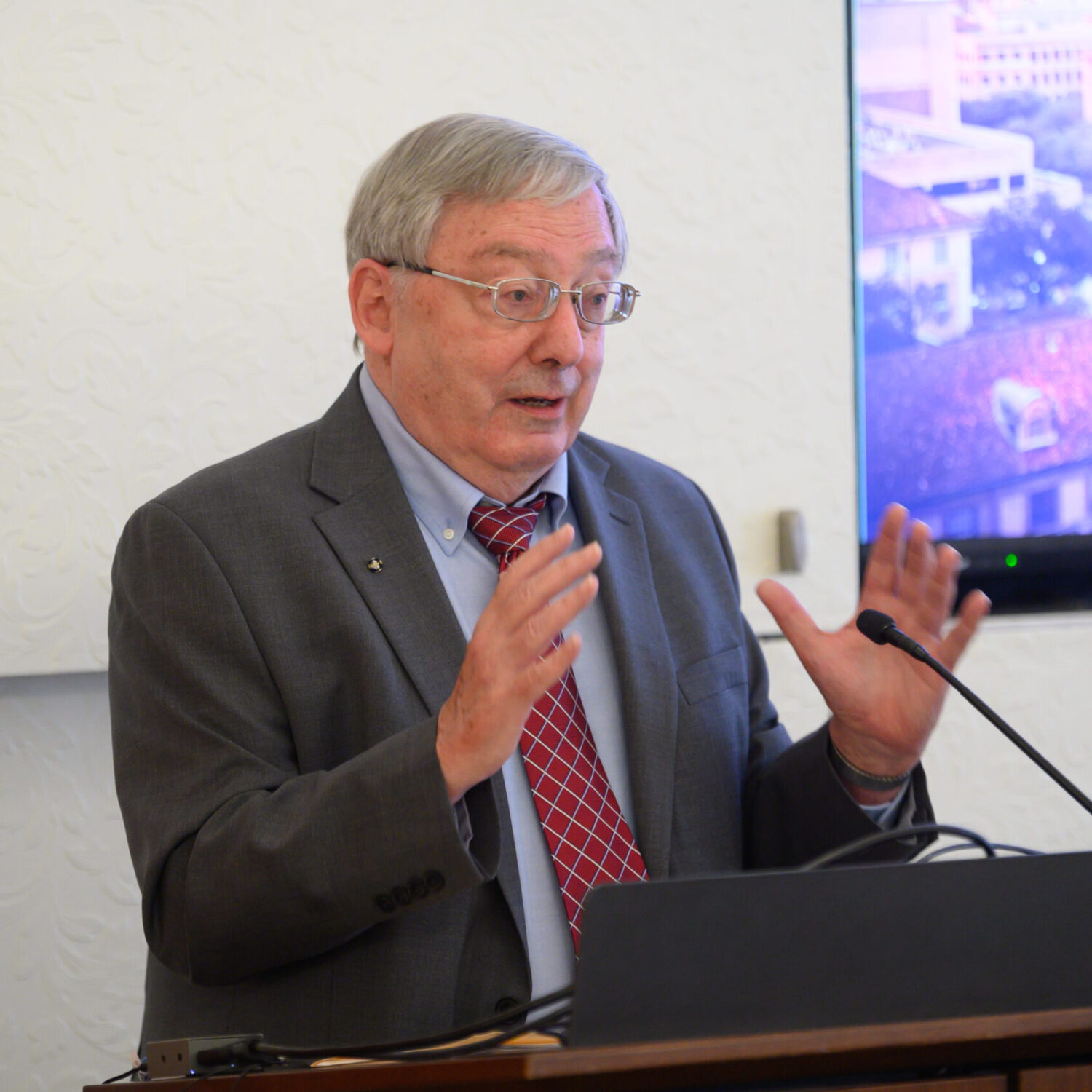
Texas Law’s Bech-Loughlin First Amendment Center hosted a festschrift on Sept. 27, 2024, in honor of Professor Emeritus Douglas Laycock, a legal scholar whose groundbreaking work on religious liberty, remedies law, and civil liberties has left an indelible mark on jurisprudence.
The event was more than just a gathering of leading legal minds—it was a heartfelt tribute to the profound influence of Laycock’s scholarship on colleagues, students, and the wider legal community. The festschrift will result in two volumes of collected papers honoring Laycock.
Laycock’s work is widely recognized for its principled approach to controversial legal battles, particularly in the realm of religious liberty. His scholarship has consistently advocated for the rights of individuals on all sides of cultural conflicts. This evenhanded methodology has earned him a reputation as one of the most respected civil libertarians of his generation. (At The University of Texas at Austin, Laycock was recognized in 2005 with the Civitatis Award for “dedicated and meritorious service to the University above and beyond the regular expectations of teaching, research, and service.”)
Faculty in attendance—many of whom have coauthored with Laycock—were proud to recognize his contributions. “Doug is one of the few law professors who is a traditional doctrinalist respected by both doctrinal and theoretical scholars in two distinct disciplines,” says Professor Mechele Dickerson, who was a panel moderator. “Remedies and First Amendment scholars both came to honor him because we all think he’s ‘our’ star, even though he’s a shining star in both of these areas.”
Laycock’s important publications include “The Death of the Irreparable Injury Rule,” where he challenged conventional wisdom about the necessity of demonstrating irreparable harm to secure an injunction; “Modern American Remedies: Cases and Materials,” his influential casebook on remedies that has been a staple in law schools across the nation; and a five-volume set entitled “Religious Liberty,” which compiles many of his writings across the expanse of issues related to religious liberty law. The set includes the articles in which Laycock set forth and then later developed further his theory of “substantive neutrality” for the religion clauses of the First Amendment.
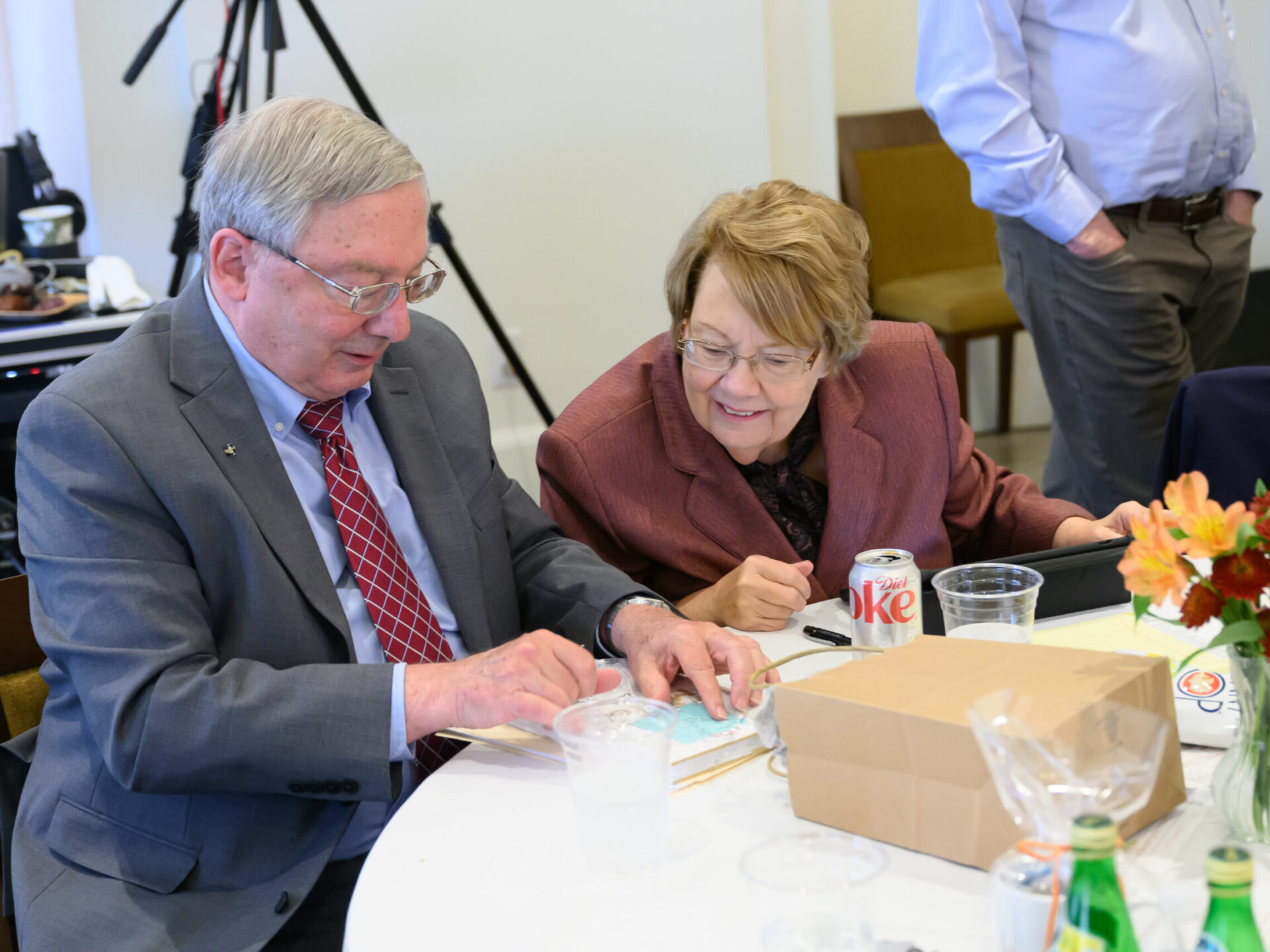
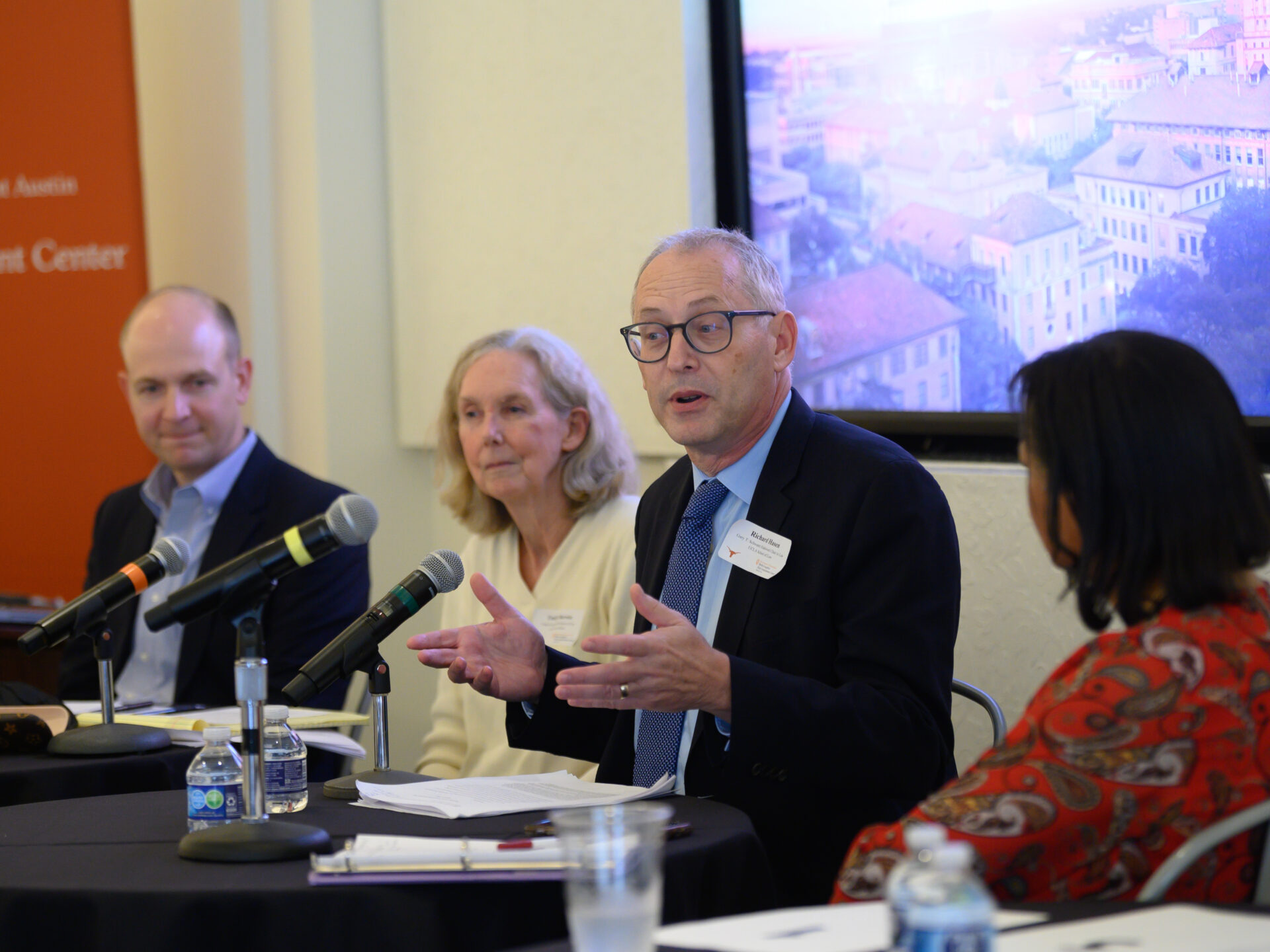
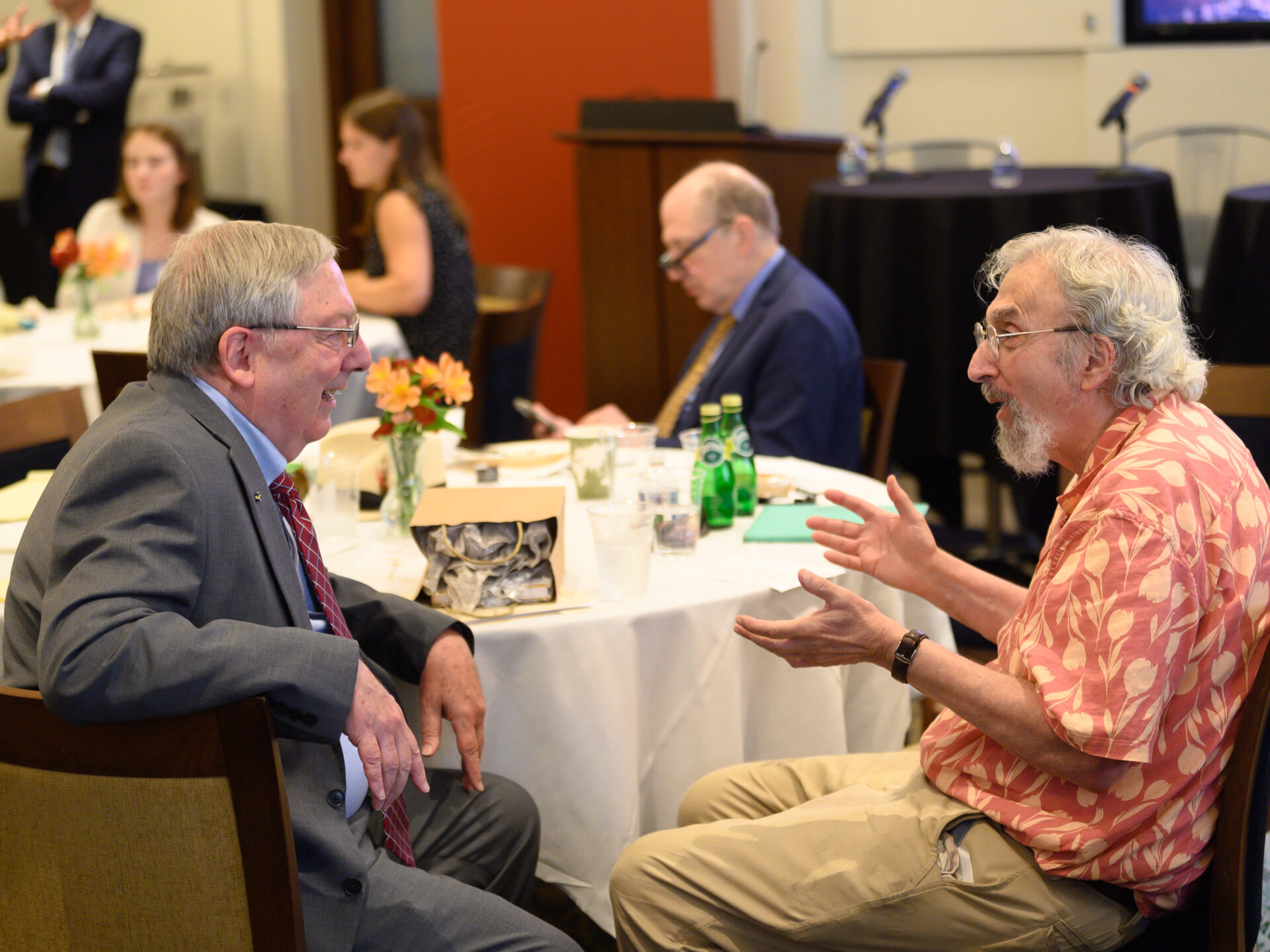
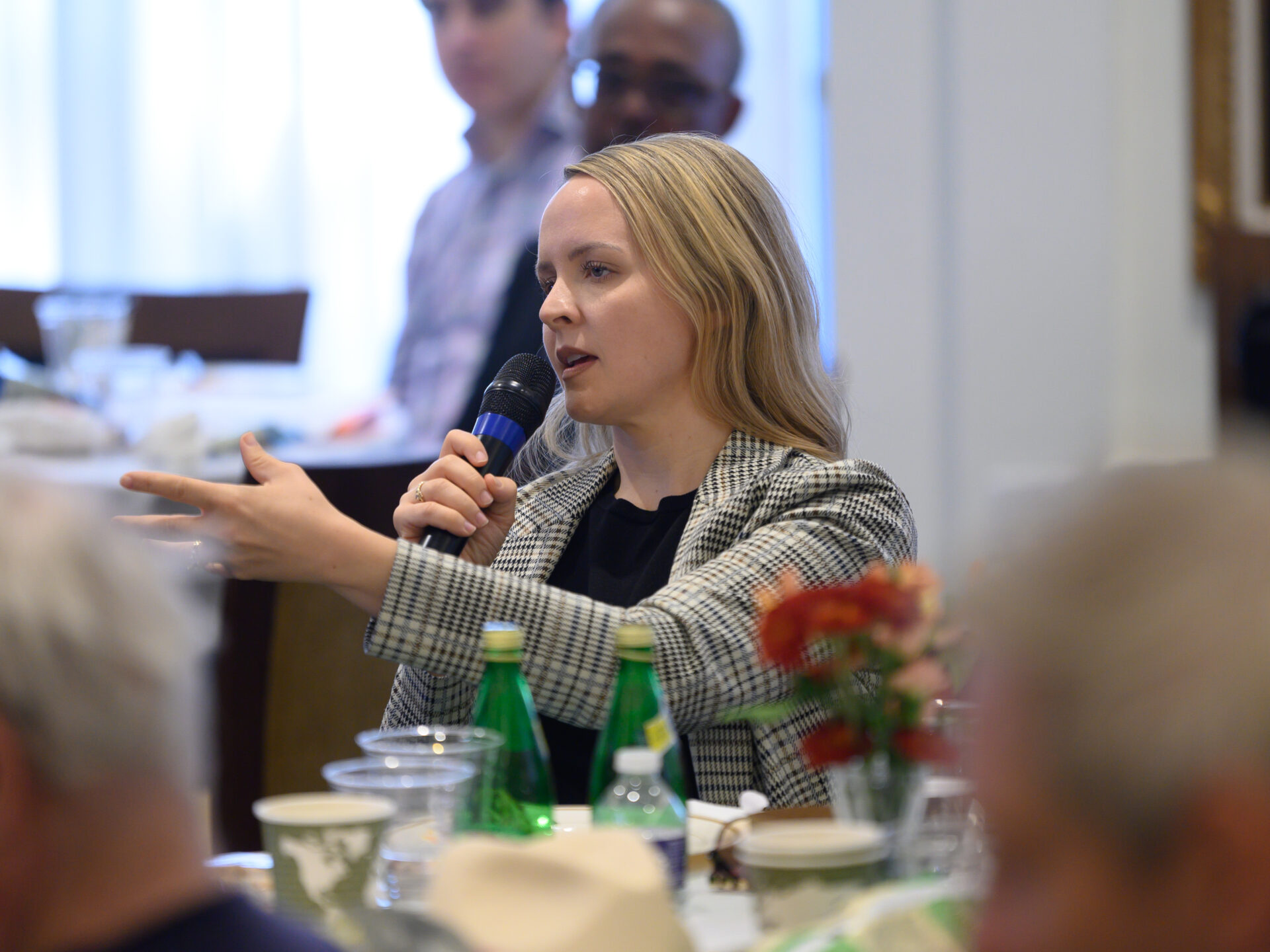
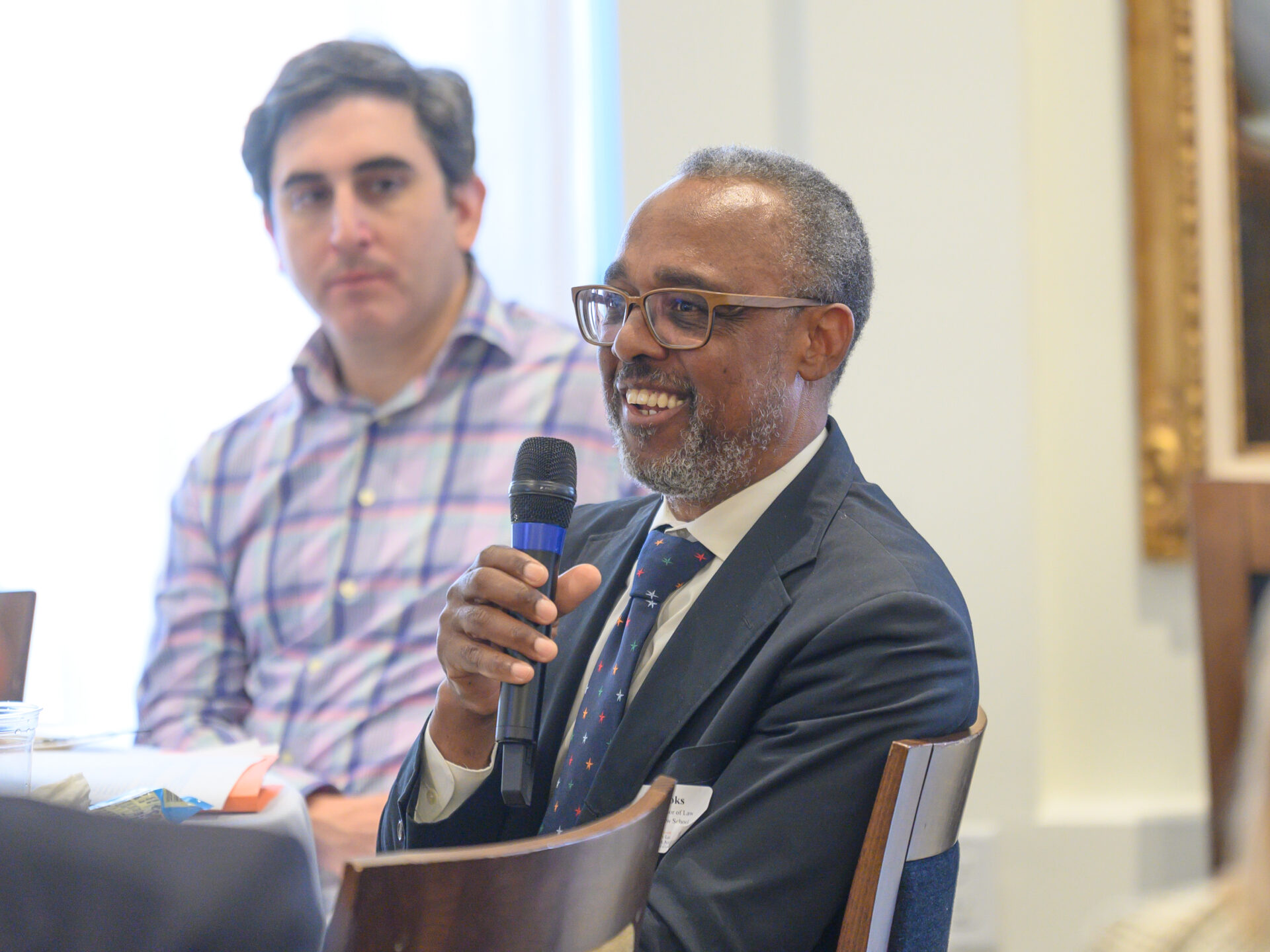
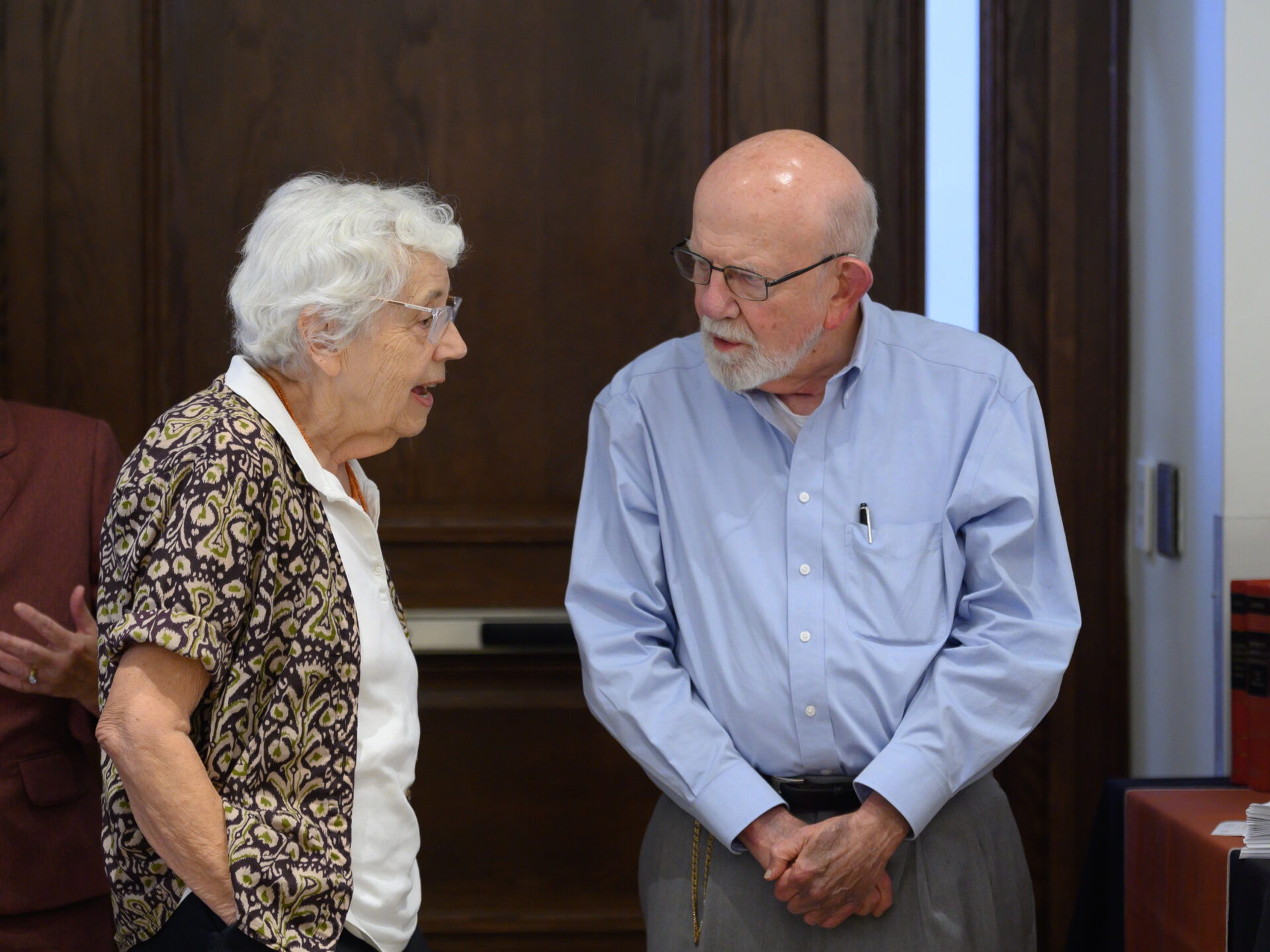
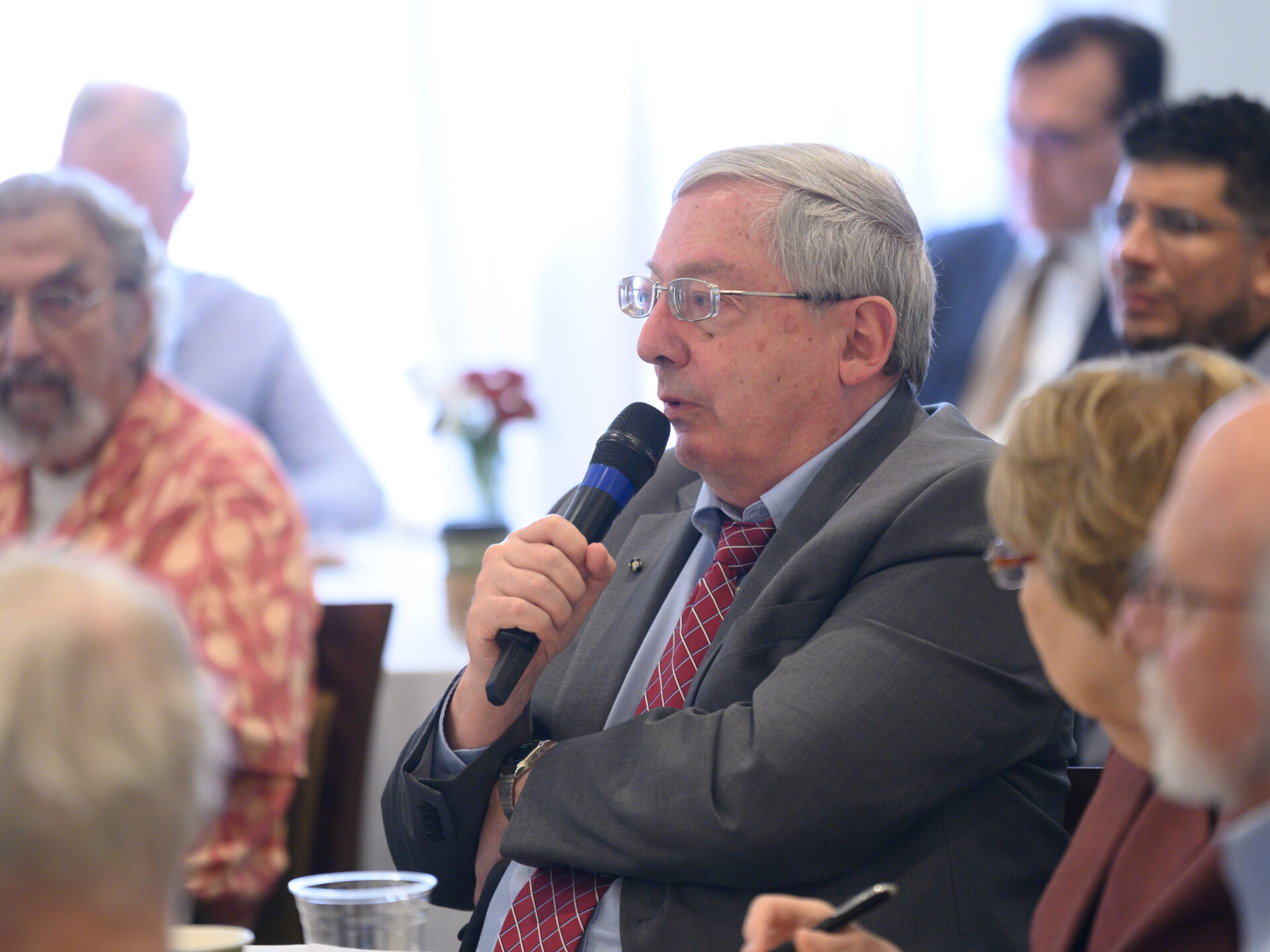
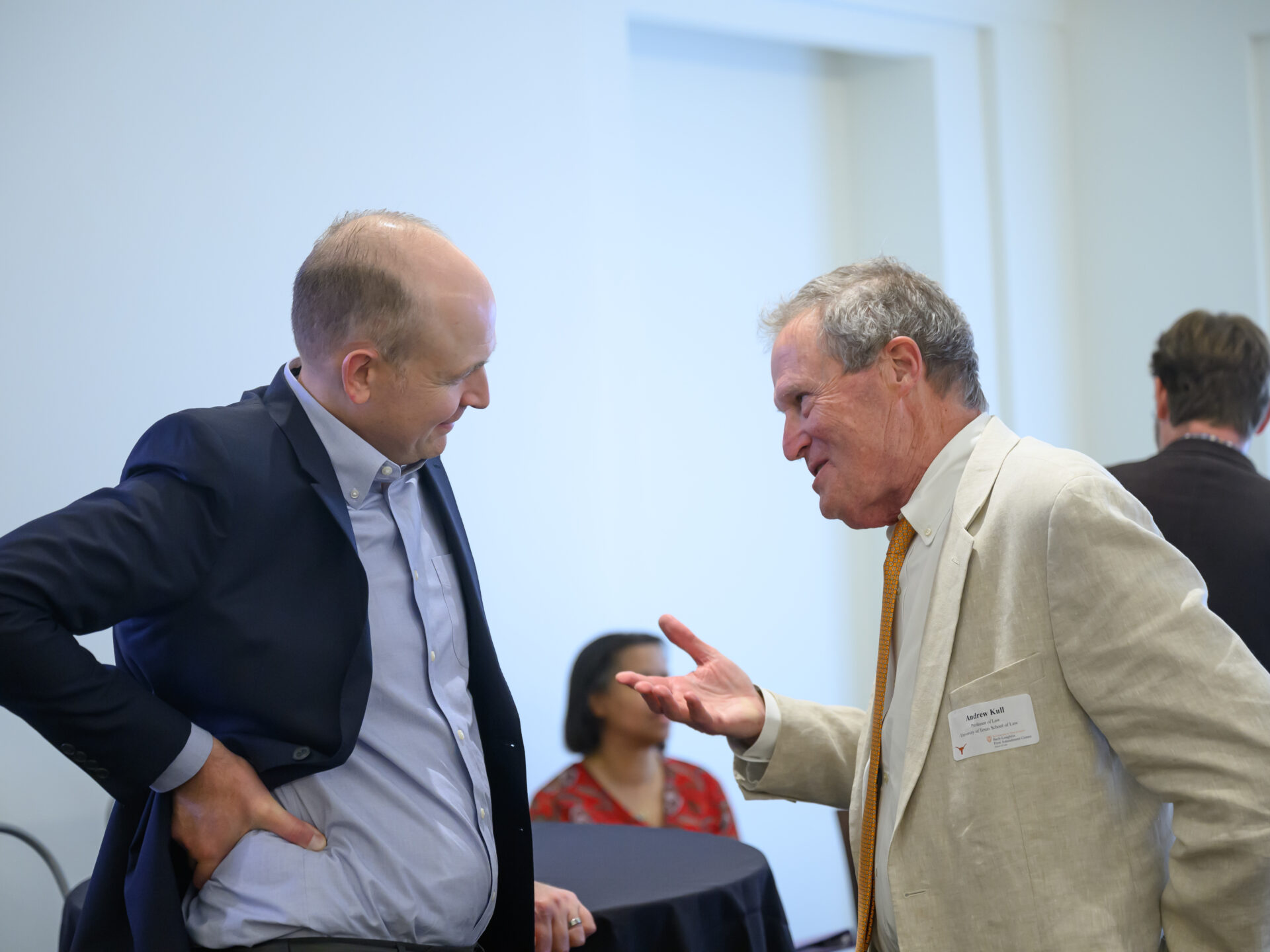
His work has left an enduring mark on the study of law. “Most scholars will work in a field that’s in a steady state,” said Samuel Bray, professor of law at the University of Notre Dame. “A few will work in a field that is deconstructing. But very few—almost zero—will be generative of a field, and Doug has been generative of the field of remedies,” Bray said. “He has written the leading book in the field of remedies, that’s ‘The Death of the Irreparable Injury Rule.’”
“I don’t think it’s too much to say there would not be a field of remedies if it were not for Doug,” Bray added.
In addition to panel discussions highlighting Laycock’s contributions to remedies, other panels focused on his work in law and religion. His advocacy for merging law and equity, as well as his influential work on the irreparable injury rule, were particularly praised.
Panelists and attendees included some of the most notable figures in law, representing a wide range of prestigious institutions:
- Stephanie Barclay, professor of law at Georgetown University, expert in law and religion
- Thomas Berg, professor of law at the University of St. Thomas, specialist in religious liberty
- Richard Brooks, professor of law at New York University, expert in private law, including contracts and corporate law
- Samuel Bray, professor of law at the University of Notre Dame, specialist in remedies and equitable doctrines
- Nathan Chapman, professor of law at the University of Georgia, expert in law and religion
- Rick Hasen, professor of law at UCLA, expert in election law
- Christopher Lund ’02, professor of law at Wayne State University, former student of Laycock at Texas Law, and scholar of religious liberty
- Doug Rendleman, professor emeritus of law at Washington and Lee University, expert in remedies
- Caprice Roberts, professor of law at Louisiana State University, leading scholar in restitution and remedies
- Emily Sherwin, professor of law at Cornell University, specialist in jurisprudence and remedies
- Mark Storslee, professor of law at Emory University, scholar of constitutional law
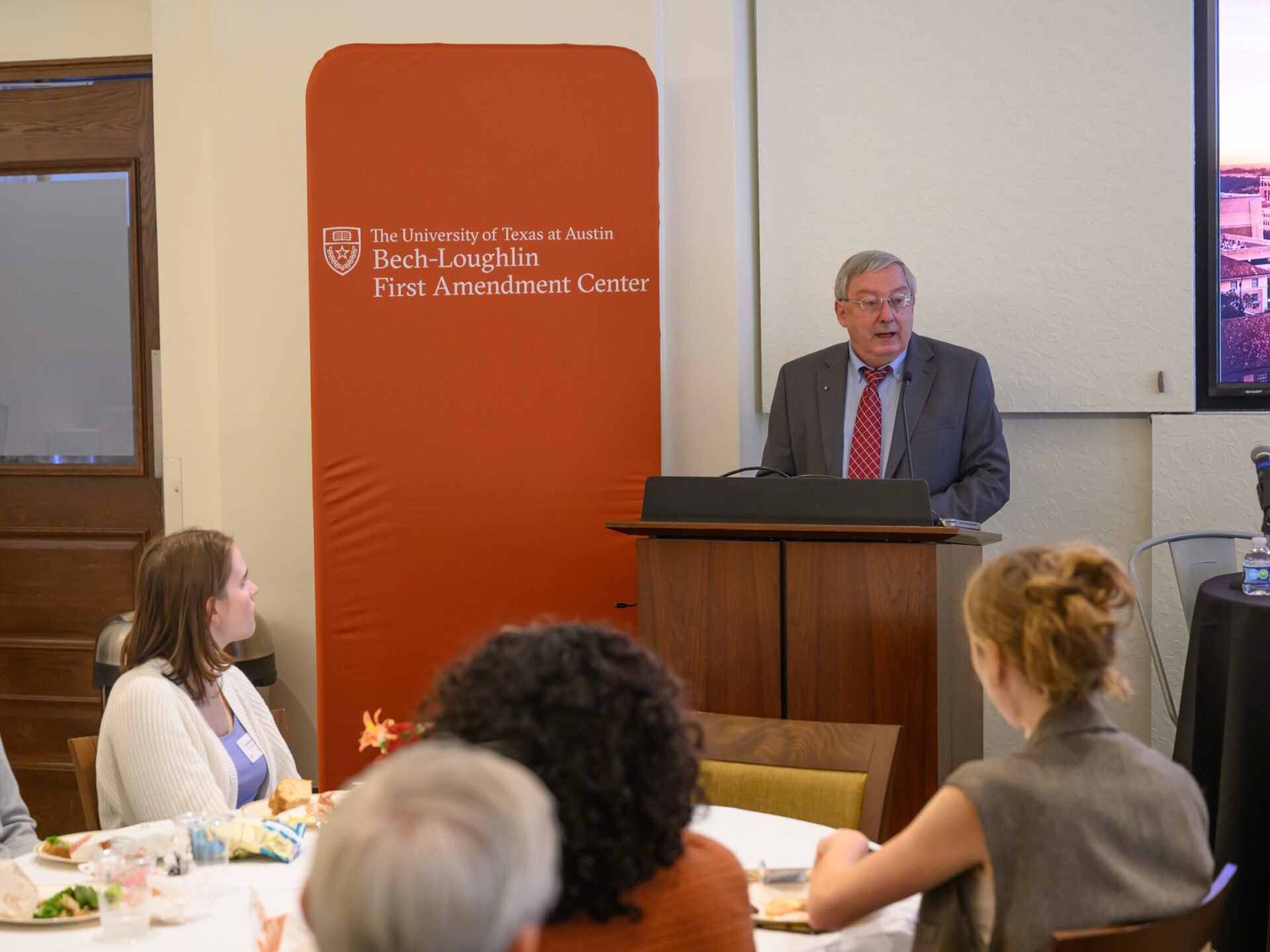
Texas Law faculty moderators and panelists included Professors Steven T. Collis, Dickerson, John Golden,Larry Sager, and retired Professor Andrew Kull. Papers by the panelists will appear in the Journal of Law and Religion and The Review of Litigation.
During his keynote remarks, Laycock reflected on his career with humility and humor, including his upbringing in a working-class family and crediting his wife, Terry Sullivan, for much of his success, noting that their 53 years of marriage were one of the greatest blessings of his life. He shared personal stories of his early career in law and his transition into academia, emphasizing the importance of relationships in shaping his journey.
“I practiced law for two years, not in a big firm, and I loved it. I was recruited into teaching—I viewed it very much as an experiment, just to see. It’s worked out pretty well,” Laycock said, prompting audience laughter. “So, I’ve been very happy professionally, as well as personally.”
Collis, the founding faculty director of the First Amendment Center, captured Laycock’s accomplishments in legal scholarship: “You climb this intellectual mountain, and you get there, and you’re so proud of yourself. And then you look over, and there’s a rock with a plaque on it that says, ‘Doug was here.’”
In his closing remarks, Collis addressed Laycock and summarized the thoughts of many in attendance. “For those of us in these fields, the best way we can honor your career and scholarship is to build on the ideas, the history, the writings, and the theory that you have developed, either by developing those things further or by disagreeing with you in a productive way,” Collis said. “In short, we need to climb higher mountains because of the mountains you’ve already climbed and are climbing.”
